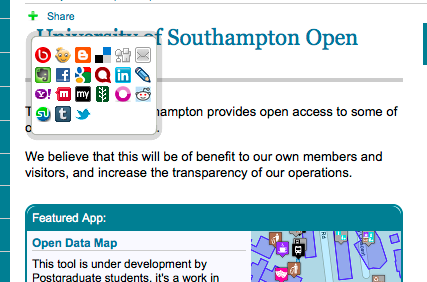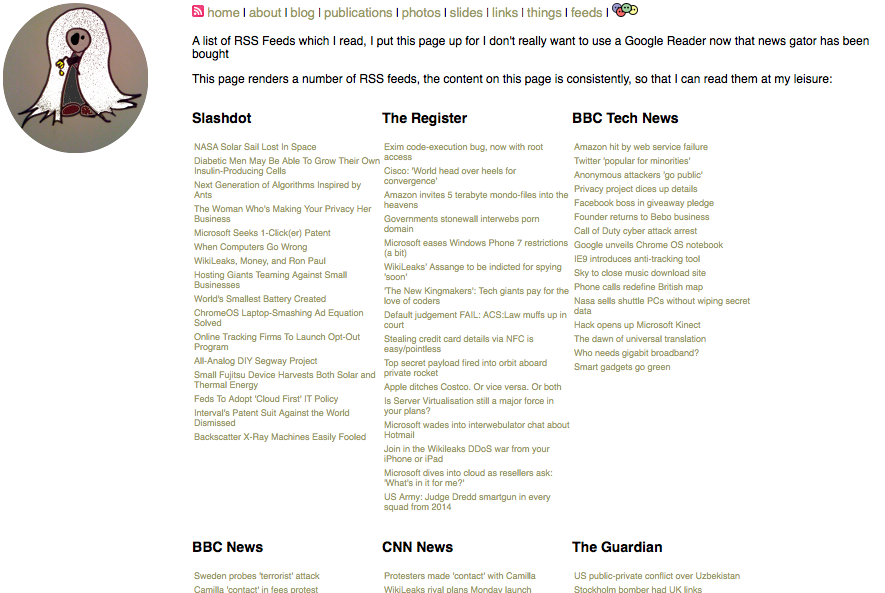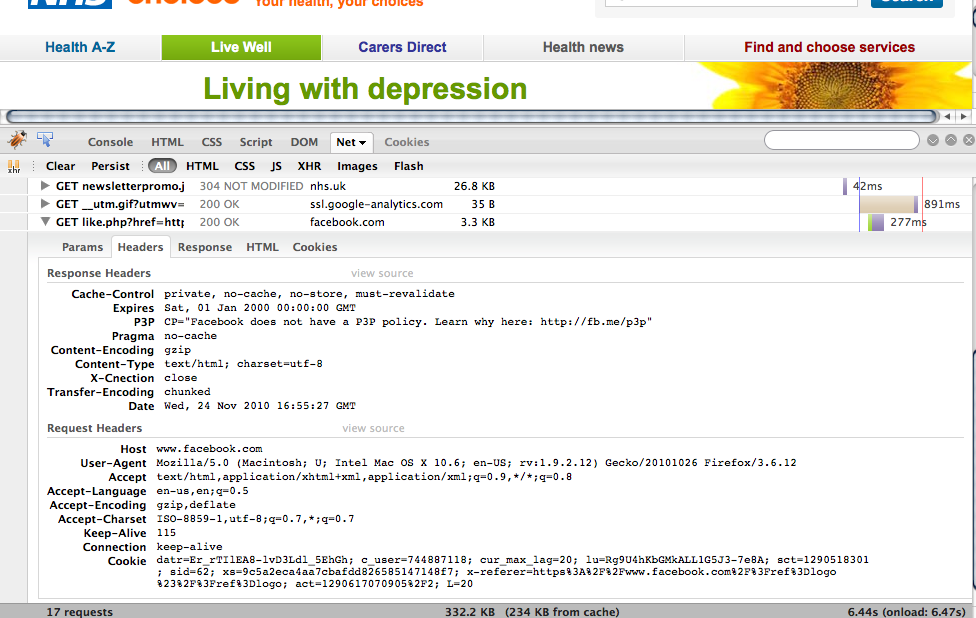shareNice : unintrusive social sharing
This post is about the shareNice social sharing widget I have been working on recently. I am pitching shareNice as a “uninstrusive social sharing” tool for webmasters.
Webmasters can add shareNice to their websites if they want to let their users’ share the pages they browse with their friend, via the many social networks platforms.
So, what is different about shareNice, and why should you choose to use it?
- shareNice respects your users’ privacy .
- shareNice is ONLY a social sharing widget.
- shareNice is not an analytic tool, we DO NOT log any of your user’s information.
- shareNice does NOT track your users.
- shareNice is free-software and you can choose to host your own copy if you wish.
- shareNice is NOT a profit making endeavour.
Below is an example screenshot of the shareNice tool being used on The University of Southampton’s OpenData site.
As it stands, shareNice is being used on the following sites : http://data.southampton.ac.uk, http://www.garlik.com, https://mmt.me.uk/blog/, and the http://sharenice.org/ itself. And yes most of these sites are friendlies, but I would love to other people to start making use of the site too!
We are currently working on a WordPress plugin for the shareNice widget, and an eprints plugin too. I would love if someone would like to create a Drupal plugin for shareNice, that would be great!. You can see a list of feature requests on : http://sharenice.org/.
Given that the apache instance which this runs off of doesn’t generate ANY logs, I have no way of know if people are using the service, so please do let me know. Either via my blog, twitter, or github.
Finally, I should name dropped all the nice people which have helped in the development of shareNice: Monika Stepinska, Steve Harris, and Sebastien Francois. You guys rule!
Knocking up my own RSS reader
Since Newsgators RSS Reader asked me to supply them with a Google Account, becoming Google Reader, I gave up on the service. I using an RSS reader which would sync my laptop with my phone and when my phone became capable of reading interwebs when traveling about. In short RSS is awesome, and Google Search is awesome, but I try and spread my personal data thin across many companies instead of giving it all away to one. I used the iGoogle page for a while, but I thought I could just emulate that on my website, so I did …
In short:
Google offer a great search experience, they can have my search history, Facebook offer a good way to stay in touch with your friends, Yahoo/Flickr provide a good photo sharing experience, and well Last.fm do an awesome job of recommending me music – get what I am hinting at. I could just used Google to do all of the above, but somehow I feel better about myself spreading my data around a bit (sorry crazy doesn’t it!).
So, I made a start at knocking together my own RSS reader which I can use to catch up on stuff : https://mmt.me.uk/blog/rss/. I used this PHP RSS Reader library. Sadly, it doesn’t understand RSS 1.0 which is RDF, it only seems to parse RSS 2.0.
It was really easy to do not more than an hours work. I am going to start parsing in the descriptions of the items in the RSS feeds, but sadly this isn’t trivial, people are starting to flood their streams with linked to google-analytics, to facebook share (including links to icons hosted on facebook.com [naughty]), and other nastiness. So I will have to write some code to pull out all the evil in the descriptions before adding them to https://mmt.me.uk/blog/rss/, I will update my blog when I get round it to it. I can also release code if people want, just shout…
On a similar topic, the below blog post, states:
“One privacy protection model is to scatter your data about to make it more difficult to parse, akin to keeping valuables in different hiding spots in your house to thwart intruders getting everything in one go.”
When referring to the use of Facebook, as your one stop shop for IM messages, photos, emails and your social graph.
My Response to the NHS
My letter to the NHS Choices Team dated 2010-11-30
Hi Team NHS Choices,
So, I just thought I would let you know that, as per my blog post, the NHS Choices website is sharing information with Facebook on pages which DONT have the Facebook Like button, as pointed out by this person, as well as being on my blog post for the last few days:
http://www.privacylives.com/v3-co-uk-ico-probes-nhs-choices-over-data-privacy-fears/2010/11/30/
Note that, NHS Choices keeps stating that its privacy policy is correct, but if you read the last few paragraphs of my blog post, right before the “comments” section, you will see that this is not the case.
https://mmt.me.uk/blog/2010/11/21/nhs-and-tracking/
Do have a look at the following page on your website, there is NO like button, and the same data exchange is STILL happening with Facebook.
http://www.nhs.uk/livewell/depression/pages/depressionhome.aspx
The following screenshot illustrates this. People are free to replicate, all you need is Firefox and the Firebug plugin (both free and open source).
I also talked about how there is a German website which changed the manner in which it implemented the Like button functionality in a non-intrusive manner. That is, a manner which does NOT send any information to Facebook.com unless the user ACTIVELY CLICKS (i.e. OPT-IN) the Like button; quoting my blog post.
“There is a way to deploy the Facebook Like button which would resemble an OPT-IN based user interaction, instead of the intrusive standard iframe based approach. This involves the use of an “onClick” function call in Javascript which would tell Facebook only when explicitly “liked”. Obviously this method of interaction does not display the “social information” such as like counts, and whether or not you would be the first of your friends to “like” a given page. The German social networking site jetzt.de moved from the iframe to the self-hosted version after vigorous backlash from the userbase about being tracked (see for instance http://jetzt.sueddeutsche.de/texte/anzeigen/385237, line 350). This example was given to me by Sören Preibusch from the University of Cambridge.”
Please see the Garlik blog for more information : http://www.garlik.com/blog/?p=419
Warmest Regards,
Mischa


